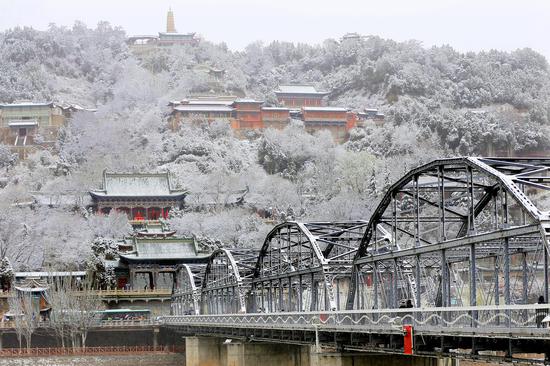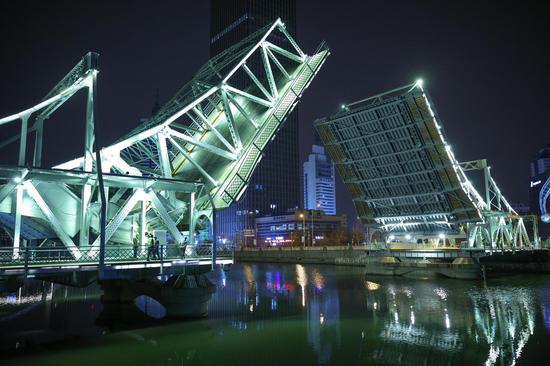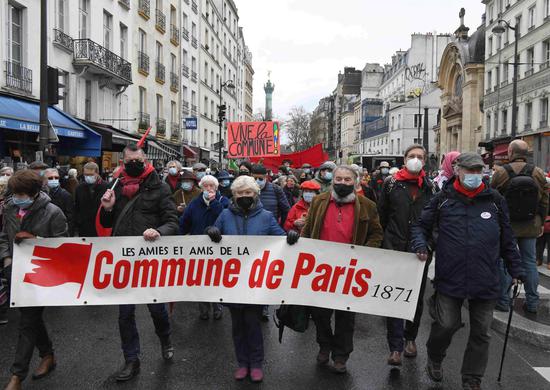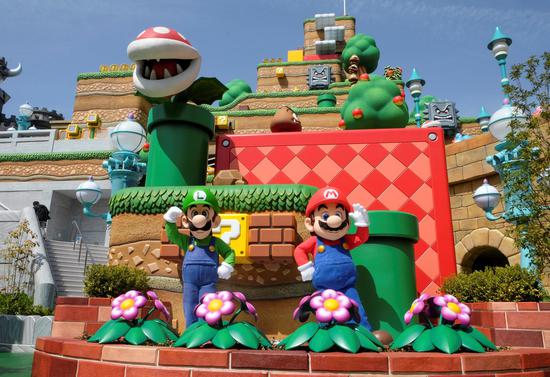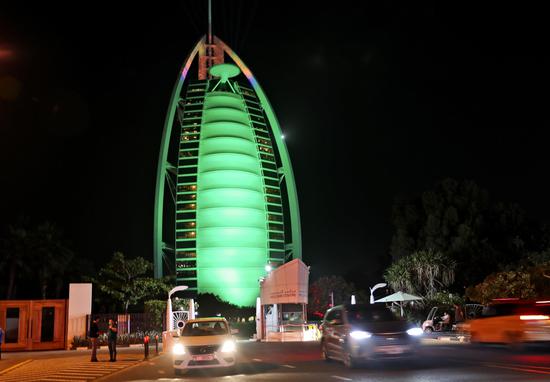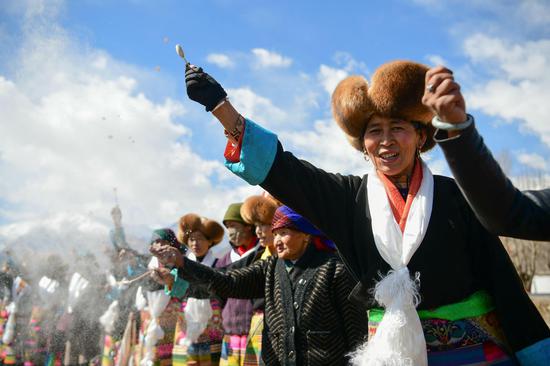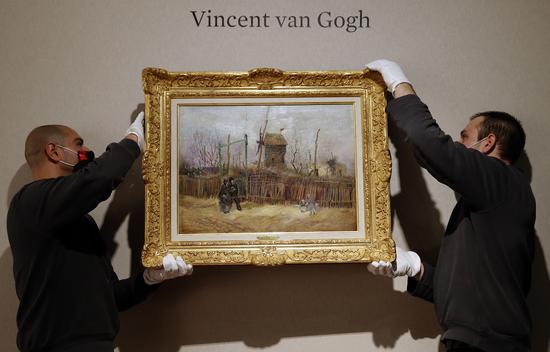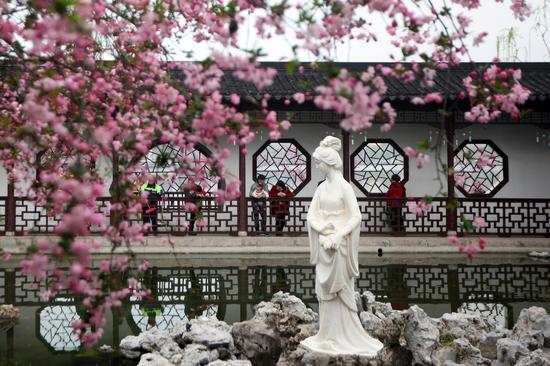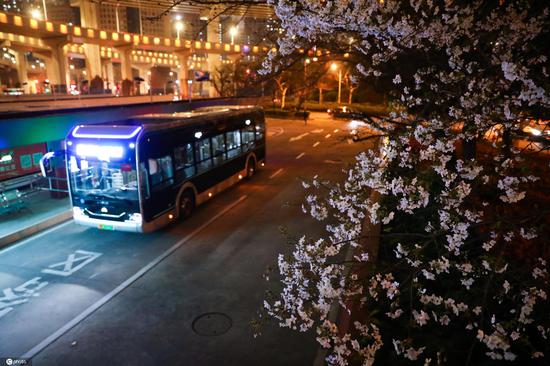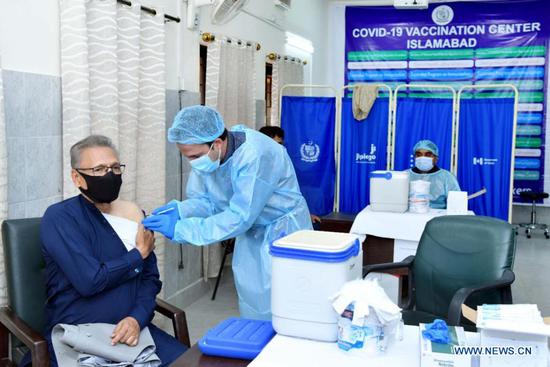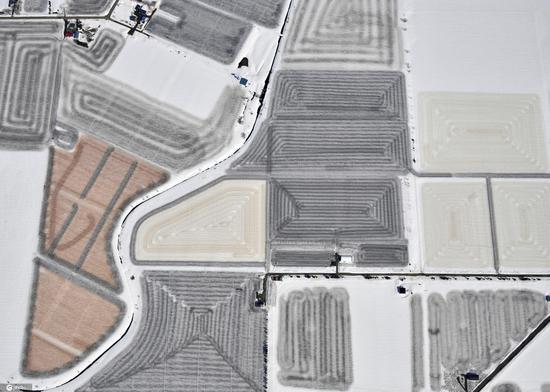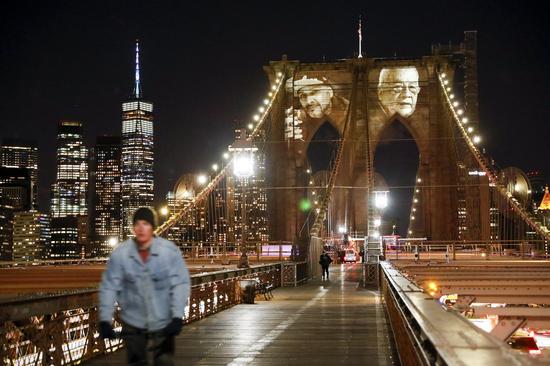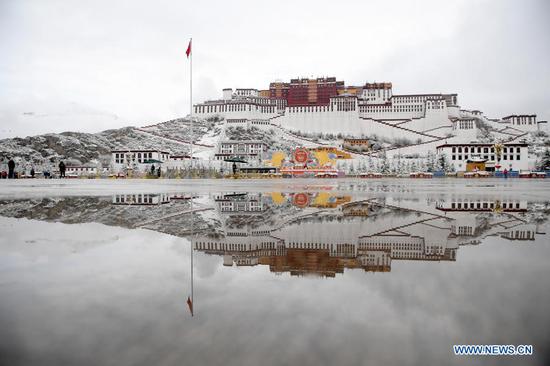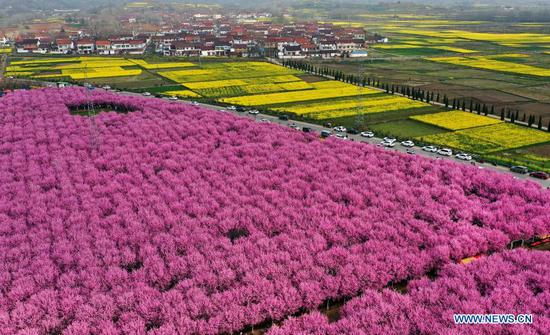Hong Kong is now blessed in every sense with a brighter future by the "three pillars of the ocean" - the National Security Law for the city, upcoming electoral reforms, and a national development blueprint that creates new opportunities for the special administrative region, Chief Secretary for Administration Matthew Cheung Kin-chung said.
And with more far-reaching changes on the horizon, Hong Kong is on track for a fresh start to regain its charm and glamour, he said in an exclusive interview.
The decision adopted by the National People's Congress on March 11 on improving the electoral system of the Hong Kong SAR, and the country's 14th Five-Year Plan (2021-25) represent a "continuum of strategic decisions and measures" following the promulgation of the National Security Law for the SAR in June to plug the city's national security loopholes.
Riding high on the goals and undertakings to have a "politically stable, united Hong Kong" and make it more relevant to the world's second-largest economy, Hong Kong will forge ahead "like a new engine" over the next five years, Cheung said.
Confidence in Hong Kong was strengthened after the decision to improve the mechanism of electing the HKSAR's chief executive and lawmakers was overwhelmingly passed at the fourth session of the 13th NPC, he said.
City's future 'secure'
The 14th Five-Year Plan, which sets out the nation's vision for social and economic development over the next half-decade, was also approved at the NPC session, held from March 5-11.
After almost two roller-coaster years, Hong Kong has been reeling from a crisis of confidence. The latest Five-Year Plan, which pledged to entrench the city's long-cherished strengths as a world-renowned financial center and super connector, is undeniable proof that the city's future is now secure, Cheung said.
At a critical, historic juncture, the grand national economic and social development plan has more to offer. It offers unwavering support for turning Hong Kong into a global innovation and technology hub, enhancing the city's status as an international aviation pivot and developing it into an exchange center for arts and culture between the Chinese mainland and the world, he said.
At the heart of the SAR's tech vision is the Hong Kong-Shenzhen Innovation and Technology Park, whose construction work has been in full swing for a "future icon" to come into being, Cheung said.
For the first time, the Lok Ma Chau Loop, where the park will be located, has been included in the country's Five-Year Plan to make it a major platform for cooperation in the development of a high-quality Guangdong-Hong Kong-Macao Greater Bay Area.
Cheung is hopeful that more iconic projects that will stand as Hong Kong's "calling cards" on the world map are in store.
The third-runway project at Hong Kong International Airport, which handles the largest volume of air cargo in the Bay Area, will buttress the city's international standing as an aviation center. The West Kowloon Cultural District will leverage Hong Kong's potential as a cultural powerhouse where East meets West.
Cheung highlighted the Hong Kong Palace Museum - a HK$3.5 billion ($450.7 million) project backed by the motherland, rooted in Hong Kong and imbued with a global vision that will show some 800 national treasures from Beijing's Forbidden City, and bring Hong Kong a step closer to the lofty goal of forging a dialogue between the Chinese culture and global civilizations when the museum opens in mid-2022.
In a broader sense, Hong Kong's new roles will add flesh to the bone in a bigger plan to harness the Bay Area's finest minds and impeccable strengths for the emergence of a globally competitive cluster of metropolises.
Home to a combined population of over 72 million, roughly twice that of Canada, the Bay Area is one of the country's most productive geographical areas with a GDP of $1.68 trillion and is on track to be comparable to that of the Tokyo Bay area.
The Bay Area "will provide a new 'turbine engine' that will propel the Hong Kong jet forward. It will be the future of Hong Kong for a number of years to come," Cheung said.
Such a promising future, however, is built on the premise that Hong Kong has essentially restored peace and stability after years of social chaos, with everything back on track. This is exactly where the improvement of the local electoral system comes in as an imperative task and the need of the hour.
"Safety, security and stability are the basic elements for a successful metropolis across the globe," Cheung said.
Implementing the National Security Law over the past nine months has brought Hong Kong back to normal. The electoral overhaul marks a bold move that has opened up a "new landscape" for the city, with rational debate returning to its legislature that will enable deep-rooted issues concerning Hong Kong's economic revival and people's livelihoods to be discussed, he said.
With a more efficient, effective government in place, a patriot-governed Hong Kong could truly expect to be part of the next big story unfolding in the country, he said.
"This is Hong Kong - a hybrid, dynamic, vibrant, safe and enterprising Hong Kong," Cheung said. With the city on the cusp of great change, he firmly believes Hong Kong will "scale new heights and fly high".
'Treasures' ensure success
He lauds the National Security Law, an improved electoral system and the latest Five-Year Plan as the "three pillars of the ocean" which, in Chinese folklore, refer to the legendary ancient treasures that pacify the oceans.
"The combination of the three also underlines the central leadership's genuine care for Hong Kong, with a clear commitment to making sure that 'one country, two systems' will be here to work, flourish and thrive, ensuring Hong Kong will succeed in the years ahead."
Calling Hong Kong a "blessed place", Cheung said the city is fortunate enough to have the motherland as its strongest, most reliable and most solid backer, which comes to its rescue when Hong Kong cannot resolve a crisis of its own. With the "three pillars of the ocean", Hong Kong can now chart the course of "completing an optimistic, new scenario" within five years.
As Hong Kong embarks on a massive public information campaign to keep the world informed about its electoral reforms, there is an equally pressing need for the local community to grasp a basic understanding of the strategic importance of the nation's latest Five-Year Plan, Cheung said.
First included in the 11th Five-Year Plan (2006-10), Hong Kong has been actively campaigning in the past decade to be part and parcel of the country's single most important document to guide its future economic and social development.
The SAR government had taken a more proactive approach in 2018 in securing a bigger role for the city at the national level, preparing for the city's development strategy and areas of interest under the 14th Five-Year Plan earlier than usual.
These efforts have paid off, with the 14th Five-Year Plan incorporating more than 500 words in a chapter designated for Hong Kong. For a top-level policy blueprint that has a major bearing on the city's future, every word is highly valued and carries weight, Cheung said.
"Once Hong Kong's roles are put down in black and white, it definitely means it. There're good reasons to believe Hong Kong now has a stake in the nation's future and shares the responsibility for great change."










